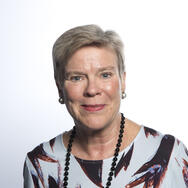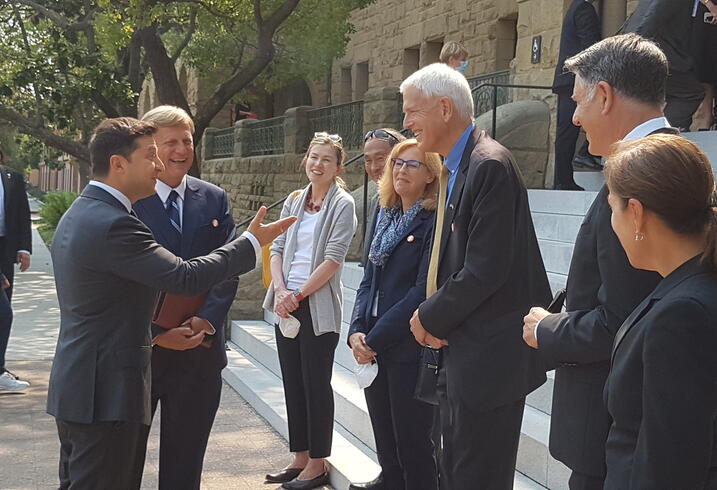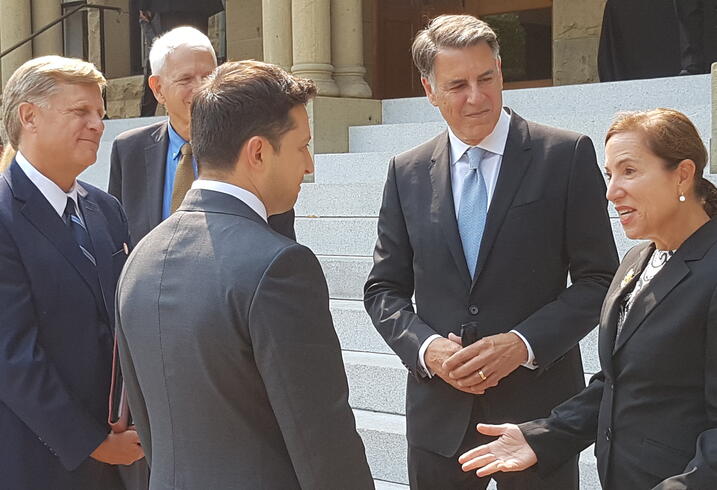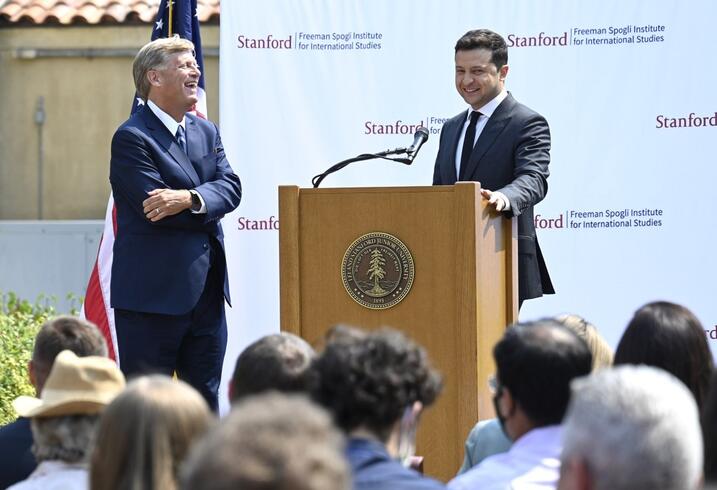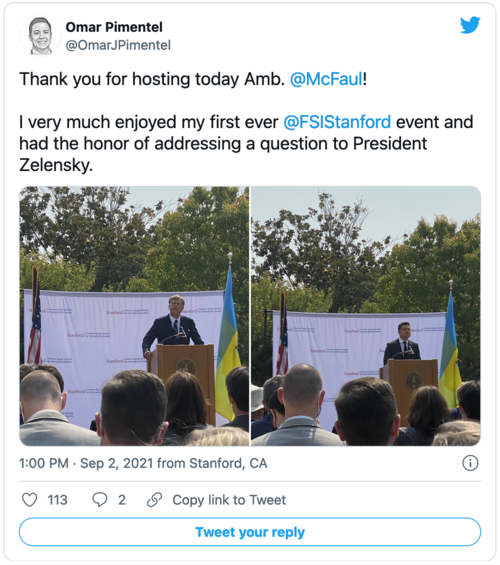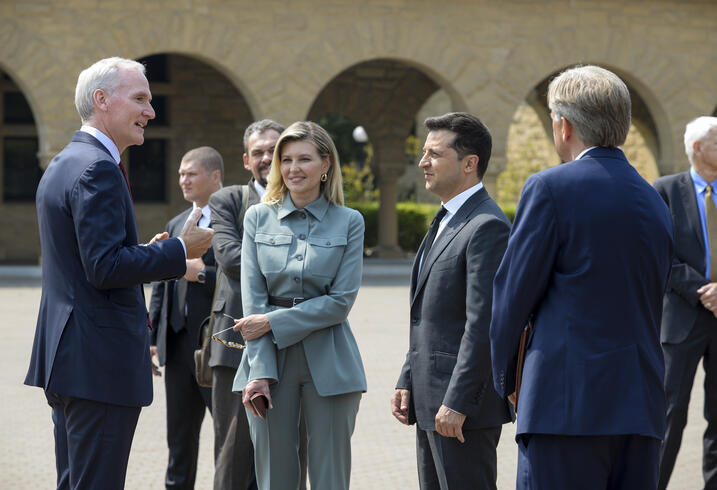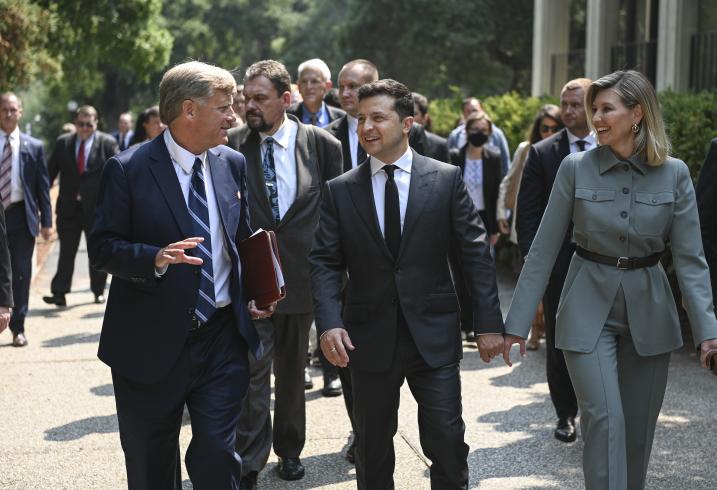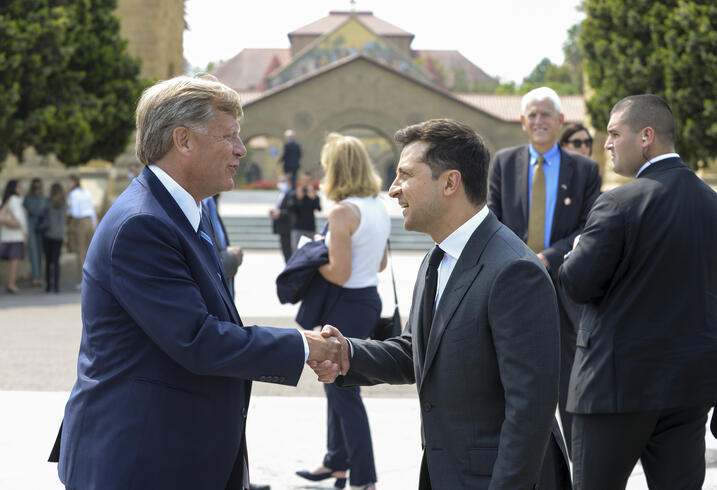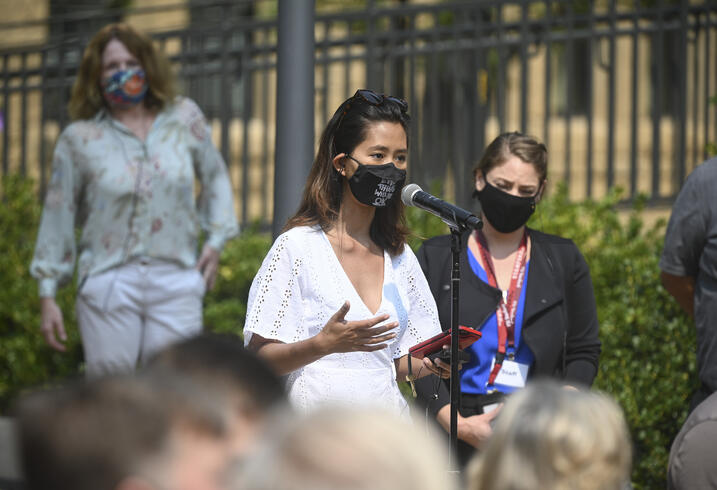The Historical Roots of Russia’s Quest to Dominate Ukraine
What has driven Russia’s violence in and against Ukraine from the 19th century to the contemporary era? In a recent Rethinking European Development and Security (REDS) Seminar talk co-hosted by The Europe Center and CDDRL, Eugene Finkel, the Kenneth H. Keller Associate Professor of International Affairs at Johns Hopkins University, argued that Russia’s recurrent attacks against Ukraine can be traced to issues of identity and security. Finkel draws on what he described as a two-hundred-year-long quest by Russia to dominate Ukraine, as detailed in his upcoming book Intent to Destroy (due for release in November 2024 by Basic Books).
Reflecting on the role of Russian identity in driving the country’s attempts to capture Ukraine, Finkel pointed out that many Russians think of Ukrainians as a subbranch of the Russian people. These stark views on identity, he noted, are partly the product of the struggle between the Russian Empire and the Polish Independence movement. In an effort to avoid Polish influence, Russia began emphasizing unity between the Russian and Ukrainian people.
Security is another key driver of Russia’s aggression. There are large geographical features that block off Ukraine from the rest of Europe, but no such dividing features exist between Ukraine and Russia. As such, any force that enters Ukraine can easily invade Russia. Historical repetition of this route has made Ukraine seemingly imperative to Russian national security.
Regime security also plays an important role. Many of the democratic ideas reaching Russia were diffused through Ukraine. Abiding by the logic of Russians and Ukrainians as one people, if Ukraine can be democratic, so can Russia. Thus, an independent democratic Ukraine poses a serious ideological threat to the regime.
Finkel argues that identity and security have always been the driving factors of Russia’s aggression. To illustrate this continuity of this trend, he draws upon a case study from the early 20th century, namely the Russian occupation of Galicia and Bukovyna. As rising Ukrainian activism threatened the Russian empire, the regime responded with propaganda peddling the notion that Ukraine had been created to destroy Russia from within – a stark parallel to propaganda today. Russia also waged a war to “liberate” the Ukrainians, believing that annexing Galicia would allow Russia to reestablish its rightful boundaries.
The conflict resulted in violence and plunder against civilians, targeting of Ukrainian community leaders, banning Ukrainian publications, and switching the education system – actions closely mimicking those of Russia today.
In 2022, Russia’s “divide and repress” strategy failed. Ukraine witnessed the emergence of a nation – Ukrainian identity became more pronounced. Russia’s initial plan was to repress Ukraine’s elites, not conduct mass executions. But as the war progressed and Ukrainians turned from brother to traitor, the violence escalated.
This obsession begs the question – when will Russia’s quest to dominate Ukraine end? Or rather, how? Given the central role of identity in driving this quest, Finkel believes that the only realistic path for ending this longstanding trend is changing the education system – a path that Russia seems to be moving further away from.
Read More

According to Eugene Finkel, the Kenneth H. Keller Associate Professor of International Affairs at Johns Hopkins University, Russia’s recurrent attacks against Ukraine can be traced to issues of identity and security.




